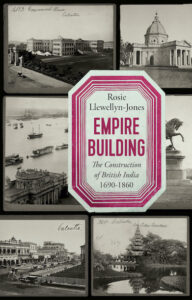The Rise and Fall of the City of Lucknow w/ Rosie Llewellyn-Jones
2 Audley Square
London
W1K 1DB
In this talk Rosie Llewellyn-Jones, author of Empire Building: The Construction of British India, 1690-1860 and The Last King in India: Wajid Ali Shah, will talk about the Indian Mutiny in Lucknow, capital of Avadh and a centre of revolt.
Lucknow enjoyed a short but spectacular rise after the Nawabs of Avadh made it their capital in 1775. Celebrated as a city of palaces, shrines and extraordinary European-inspired architecture, the arts of dance, music, drama, poetry, painting and silverware flourished under its wealthy rulers. This cultural splendour ended when the East India Company annexed Avadh and the Indian Mutiny broke out. The city was occupied by rebel sepoys and Lucknow became famed throughout the Empire for the defence of the British Residency by its garrison of soldiers, civilians and schoolboys, its reliefs by Havelock and Outram and its eventual fall to the British in fierce fighting.
About the book
Empire Building is a new account of the East India Company’s impact on India, focussing on how it changed the sub-continent’s built environment in the context of defence, urbanisation, and infrastructural development.
Rosie Llewellyn-Jones examines these initiatives through a lens of ‘political building’ (using Indian contractors and labourers). Railways, docks, municipal buildings, freemasons’ lodges, hotels, race-courses, barracks, cemeteries, statues, canals—everything the British erected made a political statement, even if unconsciously; hence this book is concerned less with architectural styles, more with subtle infiltration into the minds of those who saw and used these structures. It assesses, in turn, Indian responses to the changing landscape. Indians often reacted favourably to new manufacturing technologies from Britain, like minting and gunpowder, while the British learnt from and adapted local methods.
From military engineers and cartography to imported raw metals and steam power, Llewellyn-Jones considers the social and environmental changes wrought by colonialism. This period was marked by a shift from formerly private, Indian-controlled functions, like education, entertainment, trading and healing, to British public institutions like universities, theatres, chambers of commerce and hospitals.
Stepping aside from ongoing colonialism debates, this is a fascinating account of India’s physical transformation during the Company period.
About the author
Rosie Llewellyn-Jones PhD holds a degree in Urdu from SOAS University of London. A renowned historian of colonial India, she is Editor of Chowkidar, the journal of the British Association for Cemeteries in South Asia. Her books include The Last King in India, also published by Hurst, and Lucknow 1857.
RSVP
